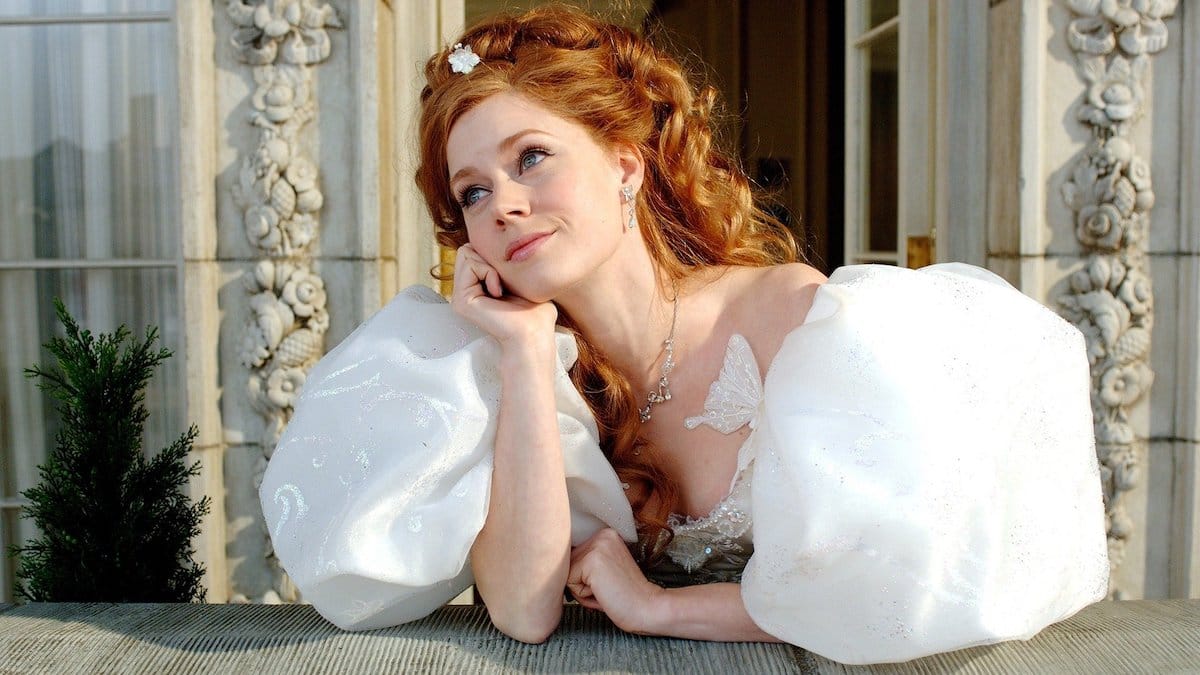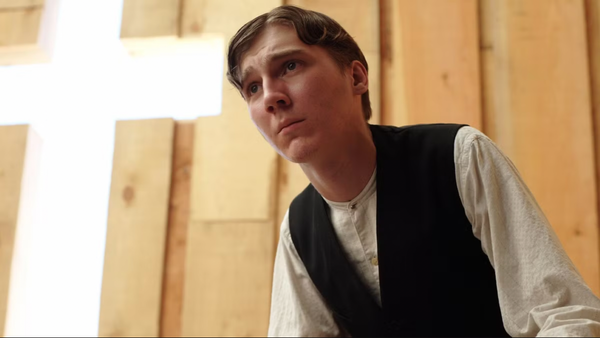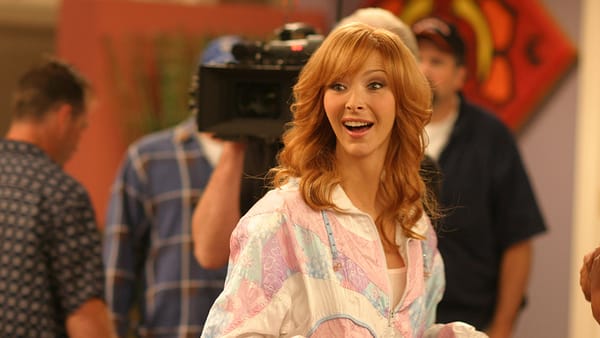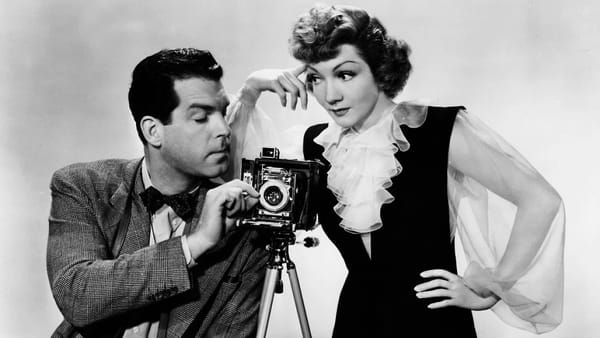Childish Things

On cinema as a refuge
Stop pathologising Disney adults! Thus rang out a cri de coeur, recently, from one Dr. Jodi Eichler-Levine, Professor of Religion Studies at Lehigh University, at the outset of a Twitter thread that swiftly went viral. The professor was reacting to a Reddit thread about two adults who had elected to be wed at Disneyland and who, because they had hired out at great expense two students dressed as the cartoon characters ‘Mickey’ and ‘Minnie’ as part of their nuptials, had neglected to feed any of the attendant friends and family. Many people on the internet considered this behaviour to land somewhere on a spectrum between remiss and hellish, but Eichler-Levine had other ideas. Explicitly drawing a parallel between Disney and religion, she cautioned: “when they [the couple] say Disney is a big part of their lives I take that seriously. Maybe they met there. Maybe the IDEAS the Mouse stands for bring them joy.”
Mmm. The good doctor doesn’t mention which ideas “the Mouse” stands for, that might bring people joy, but one must presume she doesn’t mean ‘monopoly capitalism’, ‘creative stagnation’, or ‘fence-sitting about imperilled LGBTQ rights.’ I jest: of course she means fairytale romances, childlike innocence, the concept of goodies and baddies, and the happy ending myth. Why on earth should people pathologise — by which Eichler-Levine means mock — these simple pleasures? Well, one good reason might be that the culture is currently awash with infantilising films, books and television, making it hard or even impossible for projects aimed at grown-ups to be made. People who enjoy things aimed at children are, in fact, in the majority: the US box office for 2021 largely consists of youth fare, from Spider-Man: No Way Home and Shang-Chi and the Legend of the Ten Rings, in the top spots, to Jungle Cruise (based on a Disney theme park ride) at 11 or Encanto at number 15 (Pixar films are still watched in huge numbers, but no longer at the cinema).
Contrast these films with the box office thirty years ago, when the top 10 contained grown-up films like The Silence of the Lambs, Dances With Wolves and, er, City Slickers (which, upon googling it, turns out to be a film about the experience of turning forty). The message is clear: culture was not always so overtly geared towards the young. But in 2022, we consistently hear a refrain that it’s OK for adults to read picturebooks; that Paddington 2 is the film of the century; that political events can be viewed through the prism of Harry Potter; that the whizz-bang ducking and diving of Top Gun: Maverick represents a refreshing, adult change from all the kiddie-leaning franchises. Meanwhile, the stars of Lightyear (Pixar’s prequel of sorts to the Toy Story films) were last week roped by Disney into an unboxing video that perfectly encapsulates the creeping infantilisation of cinema: Chris Evans, Keke Palmer and the shy and retiring Taika Waititi all unveil a succession of Lightyear-related action figures and toy spaceships and a cat toy that goes “peepu-peepu-peepu”. “I love Peepu-Peepu-Peepu,” exclaims Palmer, in a fun new twist on the myth of Faust.
What are adults getting from all this? In what way can these films stimulate or sate the mind of a grown-up person with a fully developed brain? Why shouldn’t we mock those who cling on to this guff? In Owen Kline’s directorial debut, Funny Pages, one scene appears to explicitly tackle this phenomenon: Wallace (Matthew Maher), a forty-something former colourist at a major comic publisher, derides two younger comic book aficionados, for their fondness for the DuckTales comics. Wallace is detached from a contemporary culture that has reclaimed youth pop culture, and possibly has unspecified learning difficulties, so it is with a joyous disinhibition that he spits: “Duck Tales was intended for ten-year-olds in the 1950s! The only people reading that now are perverts and paedophiles!” Wallace’s overreaction is joyous, in the film, because he moves directly to stigmatising what is now considered a fully legitimate pursuit, namely being wholly invested in youth culture, and valuing it on a plane with more adult-oriented work.
This comment comes as a throwaway moment in Funny Pages, because the protagonist being mocked is not only invested in art geared towards children; his diet stretches to the edgier cartoons of Robert Crumb and across all genres within comic books. But it highlights a sense that art-as-comfort-food placates readers or viewers: in fact, Funny Pages’ protagonist, Robert (Daniel Zolghadri), is shown to have trouble growing up; the film is winkingly satirical about his dependence on his parents, and his attempts to strike out on his own, despite his immaturity. Funny Pages is terribly tender towards comics and graphic novels, considering these to be a full art-form, but the film is also clear-sighted in seeing attachment to this juvenilia as a youth pursuit, or a form of arrested development.
The question of what adults might get from this surely boils down to a sense of comfort, a feeling of being returned to the easiness of childhood, and perhaps to its simple joys. Life is, in a sense, a process of degradation of child-like joy: jokes wear off by dint of repetition; various sorrows colour our capacity for ecstasy; work and drudgery, money and tiredness affect our capacity for undiluted happiness. Disney, and its endless succession of wise-cracking kids, of beautiful princesses, of colourful worlds with relatively simple adventure narratives; with its cheery mouse mascot that you had on a rucksack when you were five, is able to return you, fitfully, to those less complicated moments unclouded by responsibility.
Or to put it another way: my children squabble over what cartoons they will watch together. The four-year-old wishes to watch simple, cheery, plodding cartoons centred on the family unit, about puppies and cats, Peppa Pig, and bears falling on their arse, while the eight-year-old seeks out complex stories, action; narratives featuring characters who use irony when quipping or who break the fourth wall; material that will draw on the greater wealth of experience and vastly larger amount of brain connections that he has accumulated during their 3.5 year age difference. Just as younger children need milk and yoghurt for their bones to grow, and teenagers on a growth kick can eat their body weight in pizza, so in growing they naturally seek out art that will help their minds develop; stories that speak to the human beings they are still becoming. As teenagers it is to be expected that they will wish to see stories of desire, or which depict the psychological ambiguity which their minds can currently not quite comprehend; about war and politics, death, boredom, or about art itself. As we reach later years, perhaps we will wish to see older people on screen, and understand what it is to still desire, still strive, while knowing back-ache and late orphanhood.
Art is not utilitarian — it has no one purpose; but it does perform some functions, one of which is to explicate the world to us. My younger child recently read an abridged version of Othello and wrestled at length with the concept of a flawed hero, since his world had previously been populated by simplistic goodies and baddies: why do we love Othello, side with him against racist Venice society, and mourn him when he dies, when he has been so foolish and so mistreated his wife? Shakespeare tells us that there are no easy answers, no simple people. So what do adults get from children’s films? They gobble down a comforting lie, that life can be a fairytale, and that they can be the goodies in the story of their lives. This is all very well, if you wish to choose that for your diet, but it’s not much use for making your way in an ambiguous world. How can such people respond to all the pain, the tedium, or the sudden, fleeting flights of intense and inexplicable beauty that life has to offer? How do you pay your mortgage, or process the slow death from cancer of your favourite uncle, or begin to comprehend the compromises and approximations that elected politicians must sometimes make in the course of their job, if the art you engage with does not challenge you? Or, perhaps more pertinently, how does someone with responsibilities, real grief or an interest in politics and the world around them find kiddie art interesting, soothing or even relevant?
Perhaps St Paul had it best, in his epistle to the Corinthians (13:11): “When I was a child, I spoke as a child, I understood as a child, I thought as a child; but when I became a man, I put away childish things.” 2000 years ago, humans died a great deal younger, and social structures meant that we were required to jettison our youth much earlier; teenagers worked as soon as they could plough. Becoming an adult was also associated, in very recent times, with the idea of steeling oneself to the world; of burying emotions, and maintaining a veneer that you are coping with all the vagaries of life. Now, as two years of pandemic give way to economic uncertainty and growing fears about the future of the planet under climate change, and as we become more versed in voicing our fears, and less intent on pretending that we have all the answers, it’s understandable in some ways that people might cling on to some of the few certainties they ever encountered. So: let us not pathologise “Disney adults,” but ask what it is in the air, in our times of deep uncertainty that leads us to cling to childish things, and keep advancing adult things as the richer, deeper art form to lead us through them.



